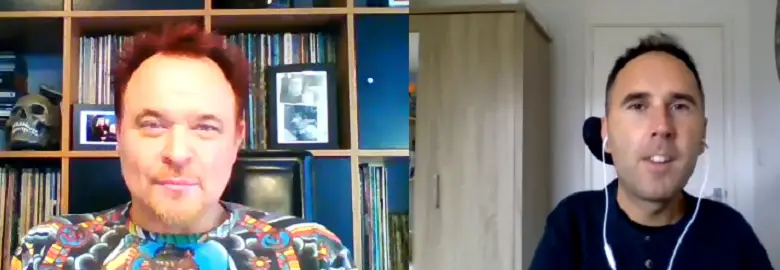
VIDEO: Mik Scarlet on being yourself, being confident and being inclusive
In our latest video interview, we speak to journalist Mik Scarlet, best known for his bold looks, dynamic presenting-style and openness about sex and disability. From his time at school to getting into TV, Mik gives us the low down on his life and career to date. Plus, with Valentine’s Day just around the corner, find out how you can access Mik’s top sex and relationship tips.
I’ve met Mik a few times over the years, but it was great to catch up properly – and we certainly did. We covered almost everything, from battling through his school days with squeaky callipers and their bolts falling off, to becoming a wheelchair user at 15 and how his new goth-style didn’t quite marry with the look of the old-style wheelchairs.
After secondary school, Mik formed a band and started touring the UK, with high hopes of being a pop star. But his career path went off on an unexpected tangent. At one of his gigs, he was spotted by a TV producer, who offered him the chance to do a screen test. After passing with flying colours, he started presenting shows for ITV and Channel 4.
He’d initially hoped this would garner him a record deal and pop stardom. But, instead, his career lead him to challenging perceptions around the representation of disability on TV, and breaking down the barriers of talking about disabled people and sexuality.
He discovered that, no matter what their disability, many people are treated the same when it comes to sex – asexual. His aim: to fight this fallacy and ensure disabled people are seen in the same way as everyone else – as sexual beings with desires and needs.
It was great to hear just how much Mik has been involved in, and how diverse his career has been. Mik has presented shows about sex and disability – including Willing and Able – and a number of kids TV shows, normalising disability for children from a young age.
But his TV career was interrupted after breaking his back, for the second time, in a car accident. During this time, he suffered badly with chronic pain. His disability had become both visible and invisible.
His experiences prompted him to work more closely with companies and industries to encourage inclusion for everyone, alongside his work as a journalist.
But, as Mik said during our chat, inclusion shouldn’t just be about disability. It should be for all minority groups – gay, black, transgender etc. After all, we’re all fighting for the same thing – fairness, equality and inclusion. We all want our talents to be recognised and modifications to be made, to enable us to show our worth.
Social media has made a big difference in the fight for inclusion. It’s meant that so many more disabled people have been able to connect with and support each other, giving us a collective voice. That’s exactly why we launched the DHorizons Tribe.
If you want to join our group, simply fill in your details below and you’ll receive our welcome emails and alerts about future articles. You’ll also get our free Ultimate Disability Survival Guide as a welcome gift.
Plus, you’ll learn when Mik’s exclusive tips about how to be sexually confident will air in our Facebook group. So, what are you waiting for?
By Martyn Sibley
Get in touch by messaging us on Facebook, tweeting us @DHorizons, emailing us at editor@disabilityhorizons.com or leaving your comments below.